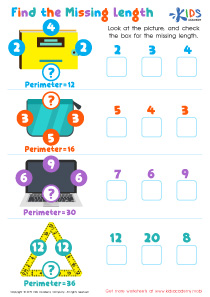Problem-Solving Skills Easy Subtraction Worksheets for Ages 5-9
10 filtered results
-
From - To
Boost your child's problem-solving skills with our Easy Subtraction Worksheets, expertly crafted for ages 5-9. These engaging worksheets help young learners master basic subtraction in a fun and interactive way. With a variety of creative exercises, including word problems and puzzles, children will enhance their critical thinking and mathematical abilities. Perfect for at-home practice or classroom reinforcement, our worksheets are designed to build confidence and proficiency in subtraction. Each sheet is colorful and easy to follow, ensuring that learning remains enjoyable. Give your child the tools they need to succeed in math with our comprehensive subtraction resources!
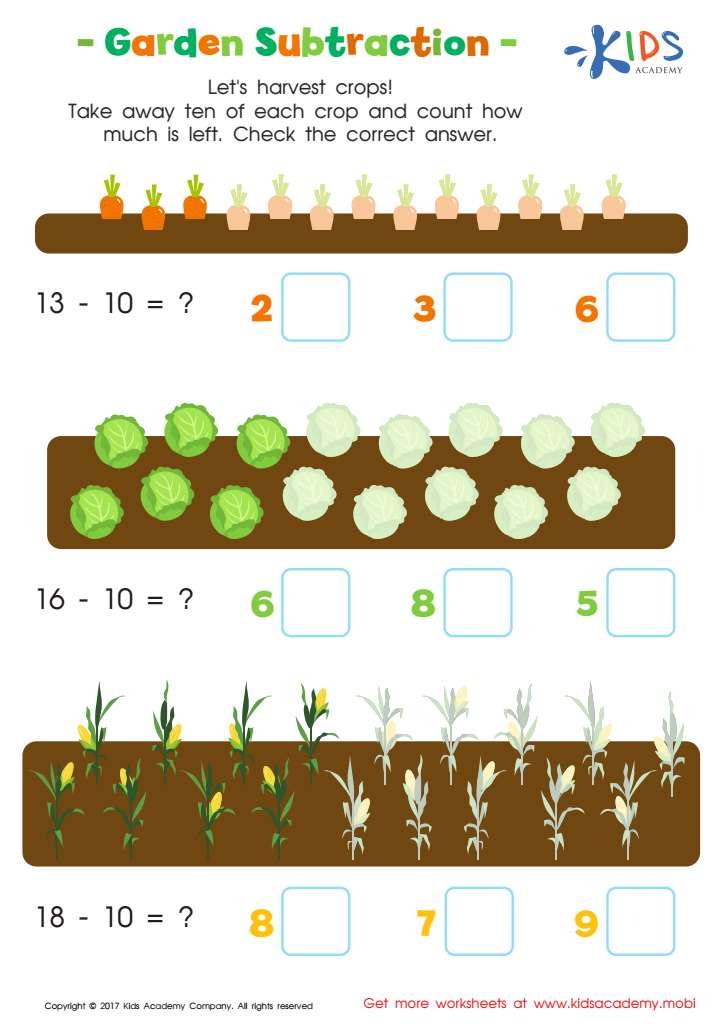

Garden Subtraction Worksheet
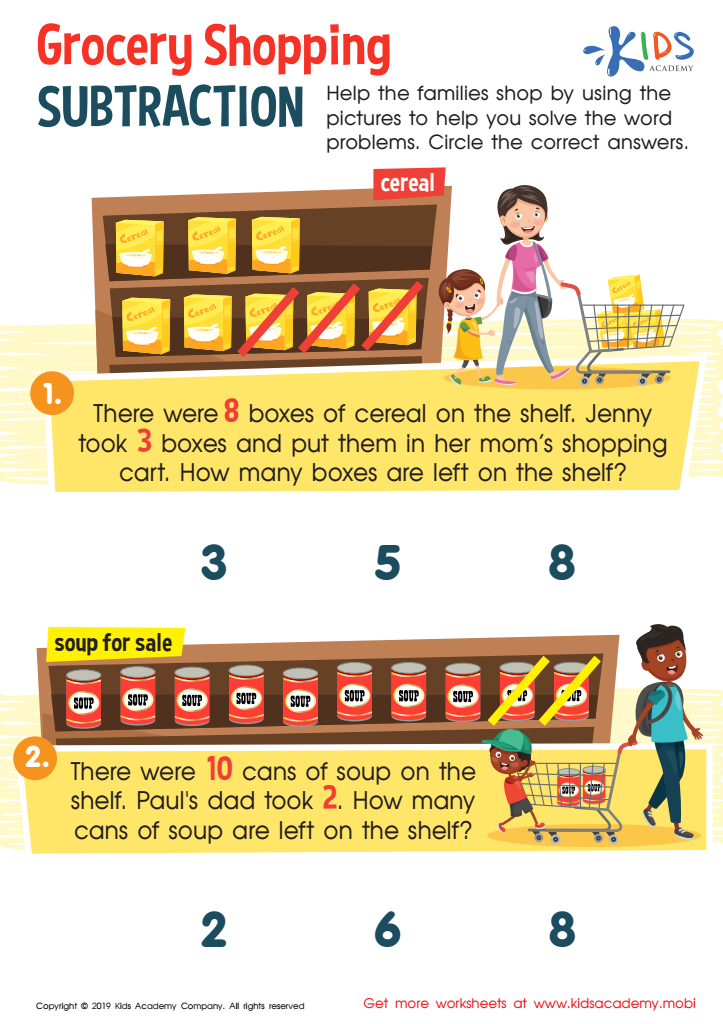

Grocery Shopping Subtraction Worksheet
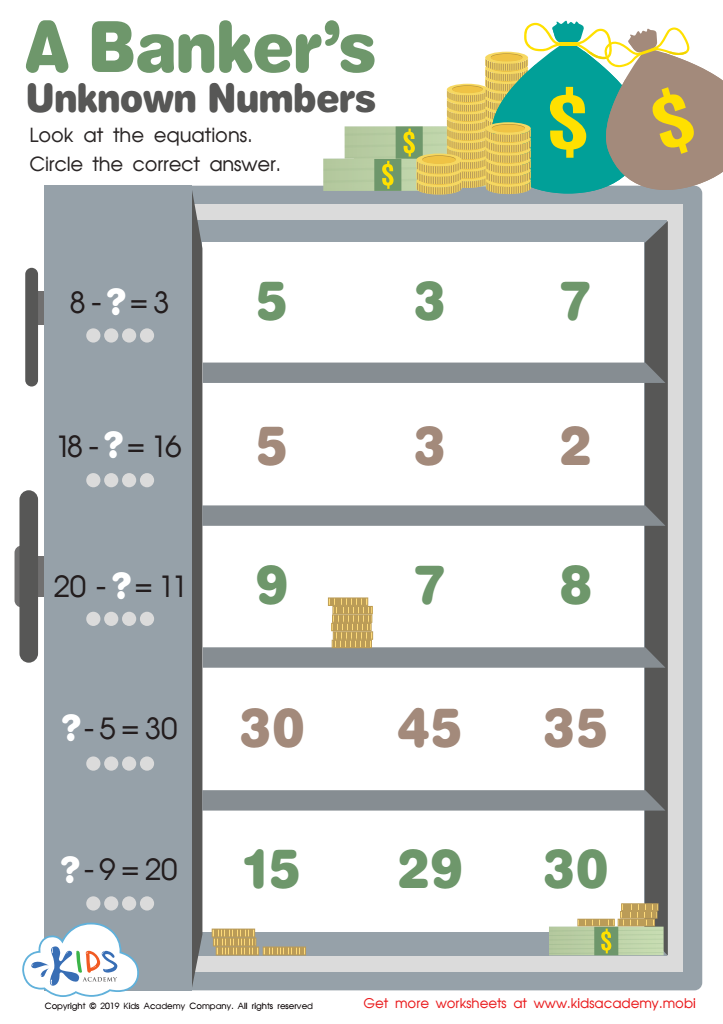

A Banker's Unknown Numbers Worksheet
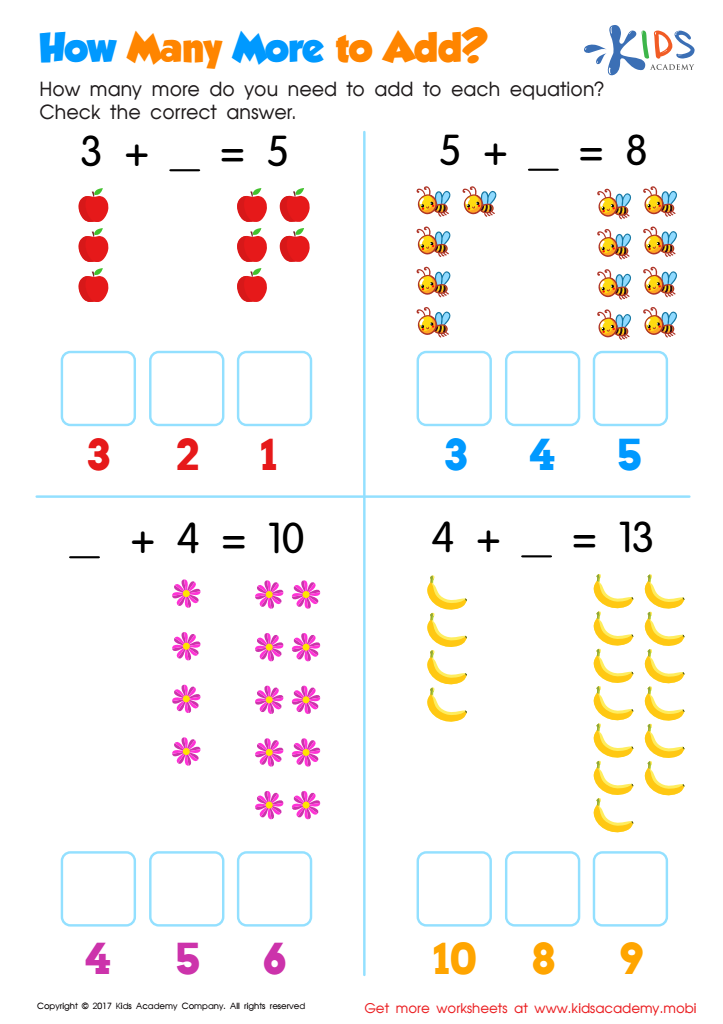

How Many More to Add Worksheet
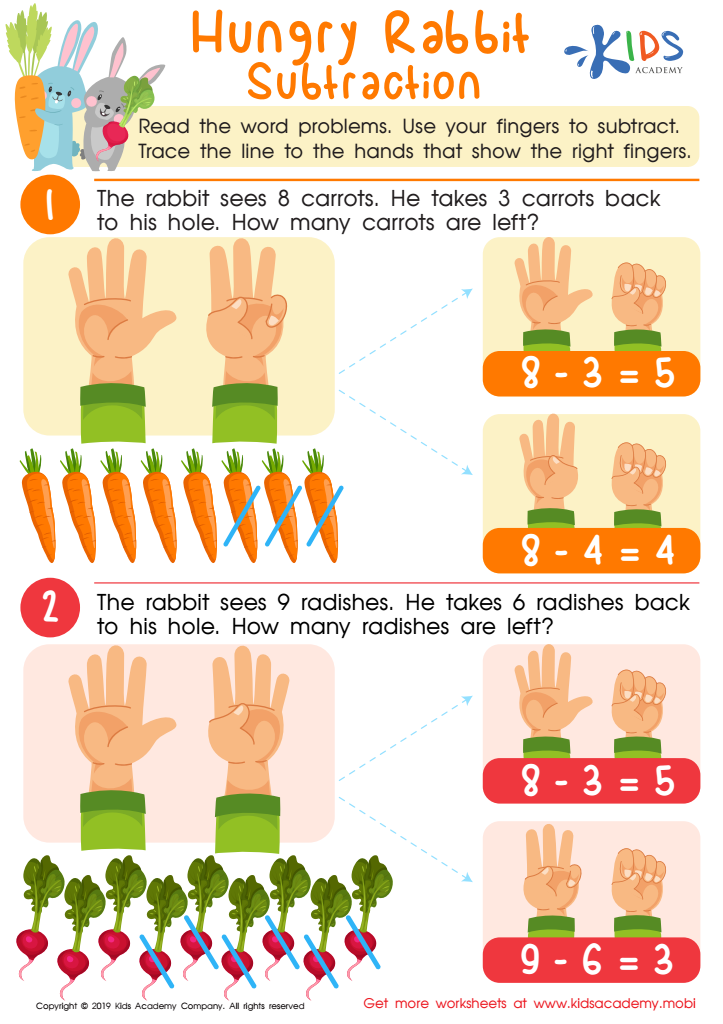

Hungry Rabbit Subtraction Worksheet
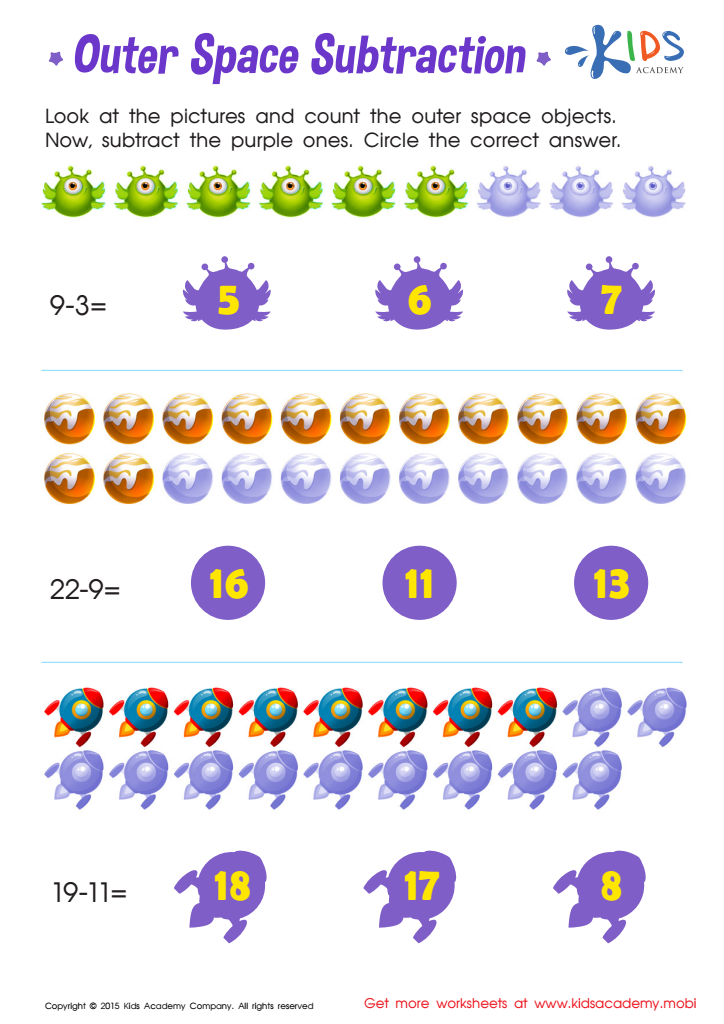

Outer Space Substraction Worksheet
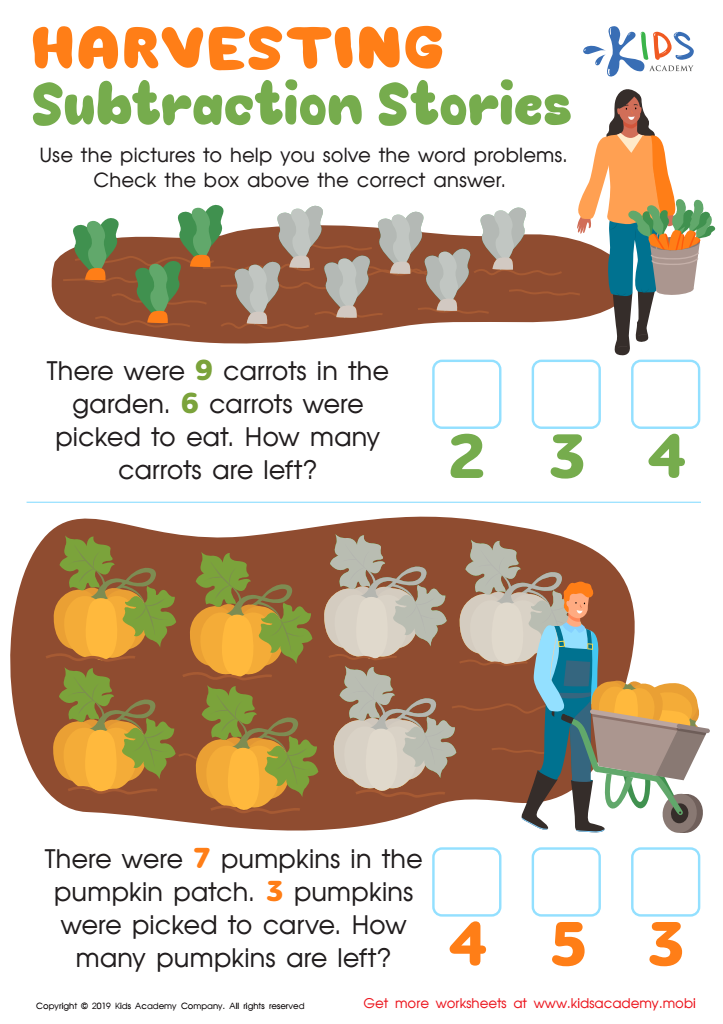

Harvesting Subtraction Stories Worksheet
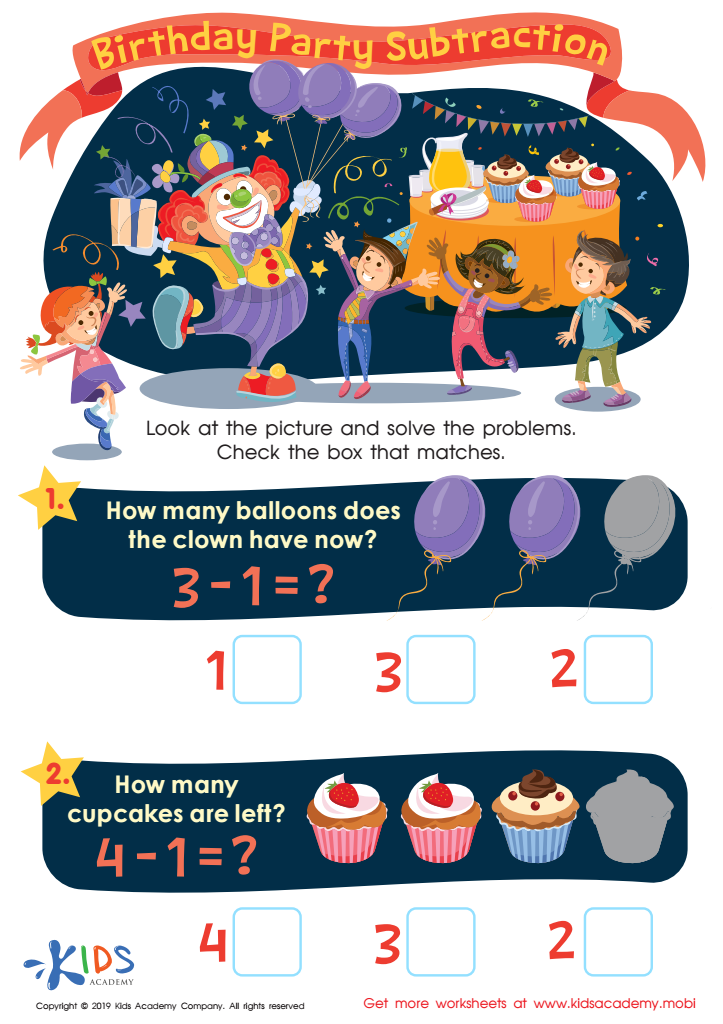

Birthday Party Subtraction Worksheet
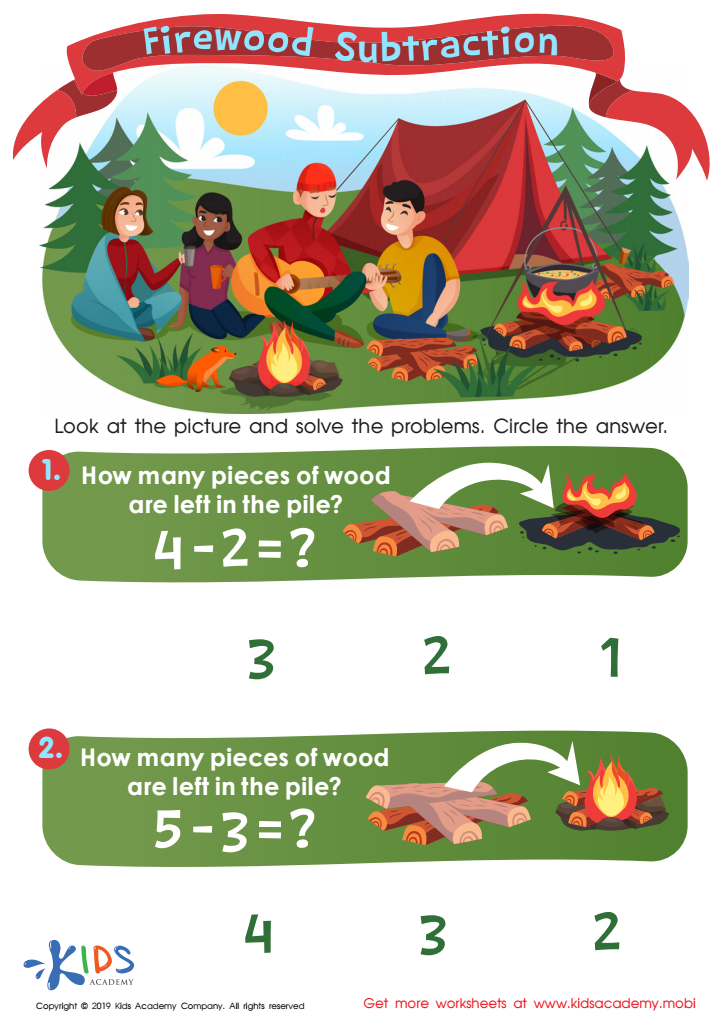

Firewood Subtraction Worksheet
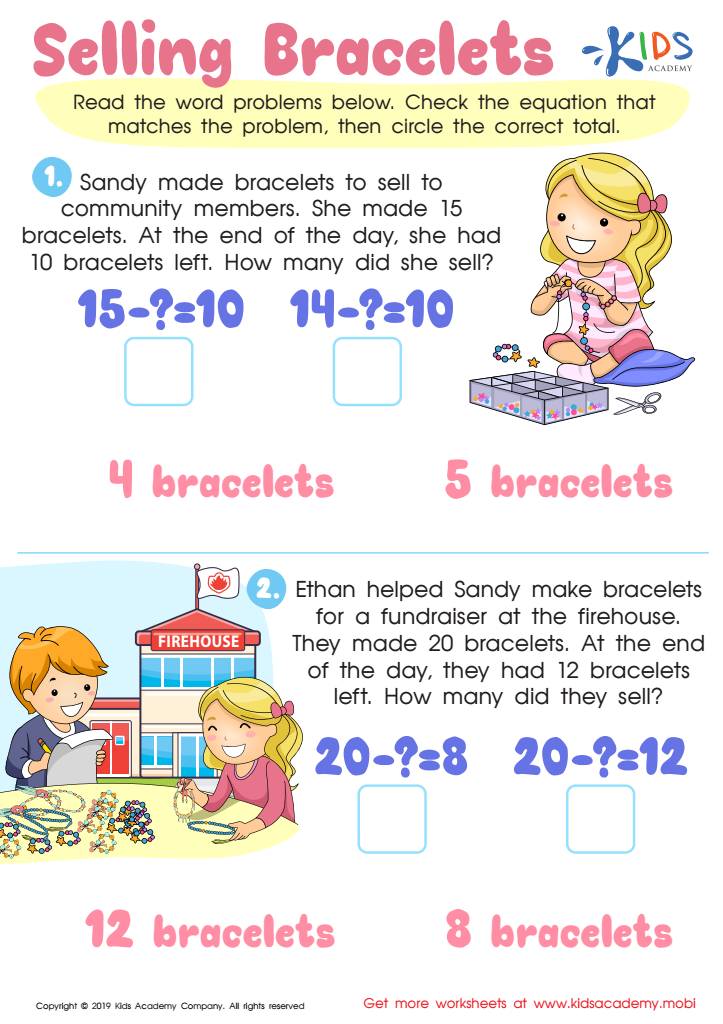

Selling the Bracelets Worksheet
Problem-solving skills and easy subtraction are critical for children aged 5-9 because they form the foundation of essential cognitive processes and mathematical understanding. At this developmental stage, kids are opening the doors to more complex mental tasks, and grasping subtraction early can significantly boost their numerical confidence and competence.
Firstly, problem-solving promotes critical thinking, teaching children how to approach challenges methodically and with perseverance. These skills extend beyond math, positively impacting their ability to navigate everyday situations, make decisions, and achieve goals.
Subtraction specifically enhances numerical literacy. It is one of the four basic arithmetic operations and mastering it is crucial for understanding more advanced mathematical concepts. When children learn to subtract, they start recognizing patterns, relationships, and the underlying logic behind numbers, aiding in mathematical fluency.
Moreover, subtraction problems often encourage children to apply multiple strategies—using fingers, drawing, or utilizing physical objects. This versatility in approach nurtures creativity and flexibility in thinking.
Equipping young minds with strong problem-solving and subtraction skills can lead to greater academic success, improved self-esteem, and a more positive attitude toward learning. Parents and teachers, therefore, should prioritize these skills to lay a robust foundation for future educational and life achievements.
 Assign to My Students
Assign to My Students








